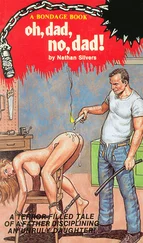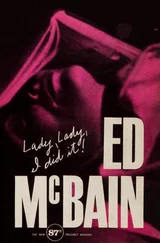“Here we are,” Jamie said.
He carried her suitcase up to the front door, and waited while she searched for her key, and then unlocked the door. She debated asking him to come in for a drink.
“I’ll call you,” he said, and kissed her on the cheek.
She watched as he went down the steps to the waiting taxi, watched as the taxi pulled away from the curb, knowing he would not call, knowing he was gone forever, and blaming it on his dumb wandering cunt of a daughter.
May 4, 1970
Dear Mom and Dad,
I guess I ought to explain first why I wasn’t on that plane from Venice, as you thought I would be. I know that must have come as a surprise to you, because when I spoke to you on the phone (you, Dad) I told you I would be coming home. I know you went to a lot of trouble getting that ticket to me, and I really am sorry if you think there was any duplicity or betrayal involved when I cashed it in at the airport in Venice. The problem was we needed money to continue our travels, and I couldn’t think of any way to get it except by telling a lie I hope you will forgive.
You’ll want to know why I have come here to Greece, I guess, instead of coming home as I promised I would. I can only say that there are some things I must do at this stage of my life, and I can assure you I am in the presence of a very warm and loving person and that no harm can possibly come to me. There are hippies like me and Paul all over Europe, and I’m sure we will find hippies wherever we travel, wherever we go, young people like us who are trying to learn about life by actually experiencing it and savoring it.
I will be staying here on Mykonos for several weeks to learn some Greek. Barbara Duggan plans to stay here indefinitely (she is living with a very nice southern boy named Robby) but Paul and I plan to travel around some of the other islands before settling down someplace. It is impossible to describe the natural splendor of this island. Flowers and green hills, air fresh from the Aegean breezes. I can’t give you an address for you to answer until we settle down, but I will write to you from time to time to let you know how I’m doing.
All my love,
Lissie
Secretly, Connie blamed it all on Jamie, tracing it back to that Sunday night in March when he’d delivered his long-distance telephone harangue to Lissie in San Francisco. His violent reaction that night had bewildered her at first, his anger seeming out of all proportion to what had actually happened. But then she’d begun wondering, Oedipus and Frank Lipscombe aside, just what had really triggered his rage. Had it truly been the knowledge that Lissie had lied to him, that Lissie was no longer a virgin, that Lissie was living with a boy he didn’t know? She wondered.
She had read somewhere — or perhaps Frank had revealed this during one of his learned Rutledge-party discourses — that unusual or unexpected behavior, deviation from set routines or schedules, unexplained absences, long meditative silences and deep sighs, sudden outbursts of anger, excessive apologies or remorseful breast-beating, all added up to trouble right here in River City, sure indicators that the male or female partner in a marriage was philandering. Jamie had over the past several months, certainly — and perhaps longer before she’d detected it — exhibited all of these symptoms, plus what she might have termed a lingering absence, a perpetual removal from the circumstances of their life together. She was, she came to realize, living with an empty cipher these days, and she thought she knew why: Jamie was involved with another woman.
The abiding suspicion that there was certainly someone else, the accompanying anger and indecision led to a helpless sort of despair in which Connie asked herself the same questions over and again: What should I do once I know for certain? Call his hand? End the marriage? Turn the other cheek? Do I even want to stay married to a man who needs other women? Is Diana Blair the other woman? Diana, who had once confided, “The way I look at it, Connie, there are the Titters and the Twatters. The girls who press their, you know, breasts against their partner’s chest, and the ones who use the, well, lower parts of their anatomies to achieve this... uh... closeness that makes it easier to dance well together. It becomes a problem for me, since I’ve been... uh... unfortunately and... uh... overabundantly endowed... well, Jesus, you know how big my tits are” — and here she’d giggled — “which of course makes it almost impossible for me to dance without some sort of frontal contact” — and she’d giggled again. Could he have possibly taken up with Diana Blair, the U.S. Open?
Maybe I should call her, Connie thought, pick up the phone, lay it right on the line: “Diana, are you having an affair with my husband?” An affair! The nice little words we’ve invented to accommodate the most despicable human behavior. Maybe the kids are right, maybe our values do reek, maybe our system is rotten and rotting further, maybe they’ve got the right idea, go out there and live with someone, live with a dozen someones on a commune, forget about marriage, forget about nineteen years of marriage — oh, dear God, what should I do?
She could not call Diana, nor could she flatly accuse Jamie of infidelity simply on the grounds that he’d been behaving strangely for the past God knew how many months. Without evidence that he was actually “philandering” (another one of our nice little words; fucking around was more like it) she would risk placing herself in an impossibly weak position if she happened to be wrong, become the abject, sniveling wife, “I’m sorry, darling, I’m sorry — you rotten bastard!”
The anger.
This was the second week of May, they had at last heard from their daughter, who was living with someone named Paul on a Greek island named Mykonos. (“Are you someone?” an autograph hound once asked Connie outside the Helen Hayes Theater on an opening night. When was the last time she and Jamie had attended an opening together? Where had her husband gone? “Are you someone?”) Sometimes when she called the studio from work, the phone rang and rang with no one there to answer it. And when she discreetly (she hoped) questioned him later about where he’d been on those particular days, he always had a ready reason for his absence: he’d been in the city ordering supplies (But can’t you order supplies on the phone? she thought) or having some prints made (Isn’t there a darkroom at the studio, darling?) or interviewing a model or seeing Lew Barker or etcetera, etcetera, etcetera. It was all the etceteras that bothered Connie. She wondered now if he went into the city at all on those days when he was away from the studio. Was he spending the time up here in the country instead, frolicking with Diana Blair?
Connie sometimes fantasized that she had a father who was kindly and understanding, generous to a fault, capable of discoursing on lofty subjects beyond her own ken or intelligence, warm and loving, offering advice untainted by prejudice, supportive and wise, entirely objective and uncensoring, a Judge Hardy (Harding?) who would call her into his study for a little chat before the fireplace. But Peter Harding, for all his nominal similarity to the character acted by Lewis Stone, whom she’d adored on the screens of countless movie theaters when she was a young girl (in those days, she had also loved Mickey Rooney with a passion beyond belief) was not the man to help her in the solution of anything more important than the pressing problem of the front doorbell: “You should have had them put a little light on it,” he’d once said, “so your company can see it in the dark.”
Читать дальше












